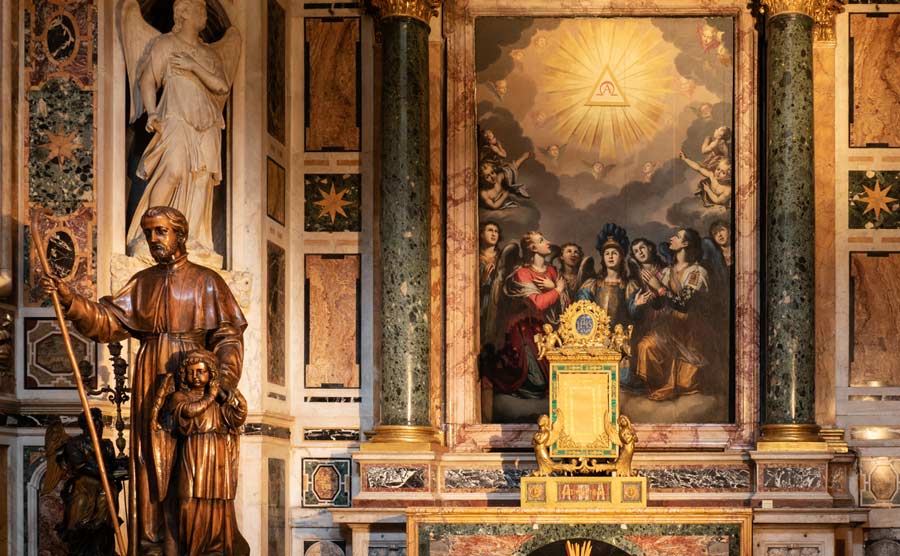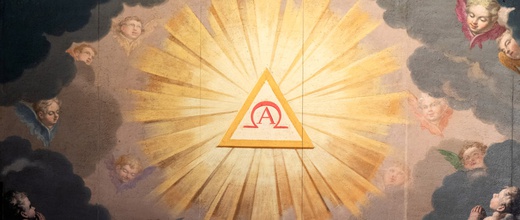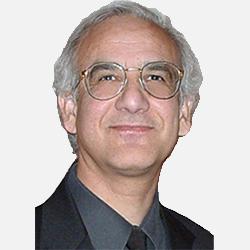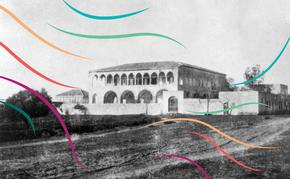The views expressed in our content reflect individual perspectives and do not represent the authoritative views of the Baha'i Faith.
Some of the followers of almost all religions make one common error: considering their own Faith as the last religion revealed by God.
At the same time, almost all religions expect the coming of a Promised One, a future messianic figure – but they resolve this contradiction by saying that the promised one would only promote and confirm the previous religion and will not change or abrogate the laws of the past prophet.
This reduction of religion to a cult of traditionalism—namely, whatever has been the law in the past must remain binding forever—has been particularly rigid among some of the followers of Islam. On the basis of one passage in the Qur’an, which states that Muhammad does not have a son but he is a messenger of God and the Seal of the prophets (Qur’an 33:40), many Muslim clerics have concluded that Islam is the last religion, that its laws are unchangeable throughout eternity, and that any deviation from Islamic law corrupts the world.
Baha’u’llah addressed this question in a number of his written works including the Book of Certitude, and the Tablet of Job: “Whilst established upon the seat of the “first,” they occupy the throne of the “last.” – The Book of Certitude.
For Baha’u’llah, the very essence and nature of religion defines it as dynamic, dialectical, and progressive. Reducing religion to a dead static object represents the ultimate distortion and refutation of religion. Instead, Baha’u’llah’s teachings revolve around the unceasing progressive revelation of God in history.
Religion as a Dialogue with Humanity
The Baha’i Faith has radically transformed the very idea of religion.
This Baha’i conceptual framework both rejects the clerical static and traditionalistic conception of religion, and also refutes the atheistic reduction of religion to a purely social and historical institution. The traditionalistic definition of religion sees it purely as the expression of an arbitrary divine will, which is absolute and unrelated to conditions of history. Therefore, religion becomes an arbitrary imposition of some absolute laws on humans – since God is absolute, the argument goes, religion and its laws are absolute. That explains one reason why the advocates of this idea view their religion as the last religion.
On the other hand, the atheistic sociology of religion reduces religion to a mere expression of social conditions. This attitude rejects the idea of a revelation from God, and sees religion as a social and historical construct, varying its form in different societies and different times.
The Baha’i concept differs entirely. The Baha’i teachings see religion as both divine and historical – as a dialogue between God and humanity. Religion is not for God, rather, it is for the development of human beings and their societies. If religion was for God, it could be absolute and unchanging. But if religion functions as a divine gift to help actualize the potentialities and spiritual perfections of humanity, it must be relative, progressive and dynamic. As humans change, their spiritual capacity increases, and as the needs, conditions and requirements of the time change, the laws of religion must also change.
If religion is reduced to an eternal, static set of laws, as a consequence religion becomes the greatest obstacle and enemy of human and social development.
In such forms of extreme traditionalism, religion turns into a powerful legitimization of oppression, intolerance, rigidity, and censorship. For example, since the laws of religions are conditioned by the relative stage of the development of society, previous religions could neither abolish slavery nor reject patriarchy. If religion were something absolute and eternally binding, no religion should have tolerated slavery or patriarchy – but the fact is that all past religions in different ways accepted slavery and patriarchy.
The active support of slavery and patriarchy by Muslim clerics in the past, the extensive justification for and codification of differential legal rights between free people and slaves, and the detailed listings of areas and proofs of the superiority of men over women in their texts explain part of the reasons why the majority of Muslim traditionalistic clerics have been enemies of modernity, human rights, religious freedom, the emancipation of women, democracy, and the equality of all humans before the law.
Baha’u’llah’s teachings reconstruct this kind of hidebound, oppressive religious practice so that it can become the cause of unity and progress of humanity. Such a lofty objective requires a total rejection of the fanaticism of religious traditionalism. Religion – reinterpreted as an ongoing, progressive interaction and a dialogue between God and humanity – becomes the foundation of a new global and historically-specific spiritual civilization.
The Seal of Prophets: Muhammad or Jesus?
Before discussing Baha’u’llah’s explanation of the meaning of the phrase “the seal of prophets,” mentioned in the Qur’an, it is necessary to note a historical paradox. Although Muslims believe that only the prophet Muhammad is defined by sacred books as the seal of prophets, the truth is that the concept of the “seal of the prophets” and the idea of the sealing of prophethood is a biblical term first used in reference to Jesus.
Unfortunately, most Muslim clerics have not been familiar with the Bible. Many falsely believed that it was intentionally altered and falsified by the Jews and Christians, deleting all of its original prophecies about Islam from the existing Bible. This offensive fantasy of the clerics has led to a systematic lack of familiarity with the Bible. Consequently, the fact that the Book of Daniel explicitly defines the crucifixion of Jesus as the sealing of prophecy has remained unknown to them. Had they read the Bible, they would know that the title of the Seal of the Prophets initially belonged to Jesus, discussed in the famous passage of the Book of Daniel about 70 weeks.
Biblical commentators agree that this seventy weeks, or 490 days, refers to 490 years because of the frequent references in the Bible that the day of God equals one year among the people. The beginning of this 490 years is also a matter of consensus, emphasized within the Book of Daniel as the year 456-7 BC. Therefore, seventy weeks ends with the completion of the ministry of Jesus and his crucifixion. The Book of Daniel defines this time as the time ordained by God at which prophethood would become sealed. The original Hebrew term used to denote this sealing of prophecy (Khatim Nabi) is exactly the Arabic term used in the Qur’an to define Muhammad as the seal of prophets. The Book of Daniel, verse 9:24, states:
Seventy weeks are determined upon thy people and upon thy holy city, to finish the transgression, and to make an end of sins, and to make reconciliation for iniquity, and to bring in everlasting righteousness, and to seal up the vision and prophecy, and to anoint the most Holy.

There is no doubt that the prophet Muhammad was aware of the Biblical assertion that with Jesus vision and prophecy would be sealed. But then, why does the Qur’an use the same title for the prophet Muhammad? Certainly, given this understanding, the typical meaning of the seal of prophets as the last prophet of God cannot be correct. If we accept the Muslim clerical interpretation of the seal of prophets, we have no choice but to conclude that after Jesus no new prophet could appear – and therefore, Muhammad could not have been a prophet. Obviously such a meaning is incorrect, but then how can such a fundamental contradiction can be resolved? Baha’u’llah’s statement in “The Book of Certitude” resolves this contradiction.
All Prophets are the First and the Last
We now can briefly explore the revolutionary and liberating character of the teachings of Baha’u’llah, who defines all prophets of God as one and the same reality.
From a Baha’i perspective, all of the prophets of God ultimately reflect and manifest the divine names and attributes in this world. That is the very essence and truth of the prophets, being the utter pure revelation and manifestation of divine names and attributes. The truth of the prophets is not their physical, human, or social characteristics. They are prophets because they reflect divine attributes and teach them to humanity. That is why the truth of all prophets is one and the same. That same truth manifests itself at different moments of history in different forms in accordance with the changing needs of humanity, while their truth remains one and the same. This theology of revelation—namely that the prophets of God are reflections of the divine—becomes the key for understanding the true meaning of the seal of the prophets.
As extensively discussed in his Book of Certitude, Baha’u’llah notes that all sacred scriptures, including the Jewish Bible, the Gospel and the Qur’an, have defined God as being both the first and the last. Like the alpha and omega of the Bible, the Qur’an defines God as “the first and the last, the manifest and the Hidden.” -57:3. Since all prophets by their very nature are the perfect reflections and expressions of divine attributes, therefore, all prophets are equally the first and the last.
Since they are all one and the same, all prophets represent the return of one another. Jesus is the last prophet, just as Muhammad is the last prophet. Likewise, as the prophet Muhammad has mentioned several times, he is all the prophets of the past, including Adam. It is interesting that the Qur’an frequently defines all prophets of the past as Muslim. This does not mean that their laws were the same as the laws of the Qur’an – obviously they were not – instead it means that the truth of all religions is one and the same, and that all prophets of God are Muhammad, just as they are all Christ.
Consequently, all the prophets of God are the first prophet and all of them are, at the same time, the last prophet. As Baha’u’llah said: Whilst established upon the seat of the “first,” they occupy the throne of the “last.” Being the first and the last indicates both the unity of all the prophets, and the dynamic and ever-advancing nature of religion and revelation.

















Comments
Sign in or create an account
Continue with Facebookor